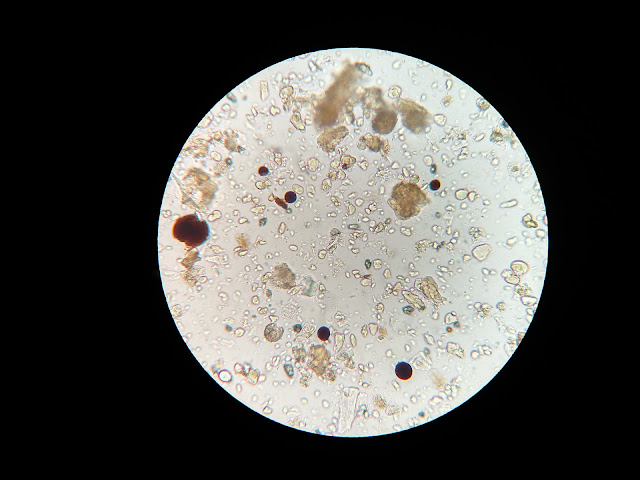Soil microbes perform several vital functions in the soil, including nutrient cycling, organic matter decomposition, and disease suppression. They are responsible for breaking down organic matter and converting it into nutrients that plants can absorb. Microbes also help to fix nitrogen from the atmosphere, making it available to plants. In addition, some soil microbes can suppress plant diseases by producing antibiotics or competing with harmful pathogens for resources.
 |
| Soil Microbes |
One of the most significant benefits of soil microbes is their ability to improve soil structure. Microbes produce a sticky substance called extracellular polysaccharides, which helps to hold soil particles together, creating stable aggregates. These aggregates provide pore spaces that allow air and water to circulate freely, facilitating root growth and nutrient uptake.
The use of soil microbes in sustainable agriculture has several advantages. First, soil microbes are natural and environmentally friendly. They do not require any chemicals or synthetic fertilizers to function, making them a cost-effective option for farmers. Additionally, using soil microbes can help reduce soil erosion and runoff, which can be detrimental to nearby waterways and ecosystems.
Several strategies can be used to promote the growth and diversity of soil microbes in agricultural land. These include reducing tillage, using cover crops, and rotating crops. Reducing tillage helps to preserve soil structure and prevent soil compaction, which can limit the activity of soil microbes. Cover crops provide a habitat and food source for soil microbes during the fallow season, increasing their diversity and abundance. Crop rotation helps to prevent the buildup of harmful pathogens in the soil, allowing beneficial soil microbes to thrive.
In conclusion, soil microbes are essential for sustainable agriculture. They perform several critical functions in the soil, including nutrient cycling, organic matter decomposition, and disease suppression. By promoting the growth and diversity of soil microbes, farmers can improve soil fertility, reduce soil erosion and runoff, and promote the health and productivity of agricultural land.
Thank you for reading this blog. Don't forget to subscribe to our newsletter for more informative articles on sustainable agriculture.
#SoilMicrobes #SustainableAgriculture #NutrientCycling #OrganicMatterDecomposition #DiseaseSuppression #SoilStructure #ReducingTillage #CoverCrops #CropRotation #SoilFertility #SoilErosion #Subscribe








No comments:
Post a Comment